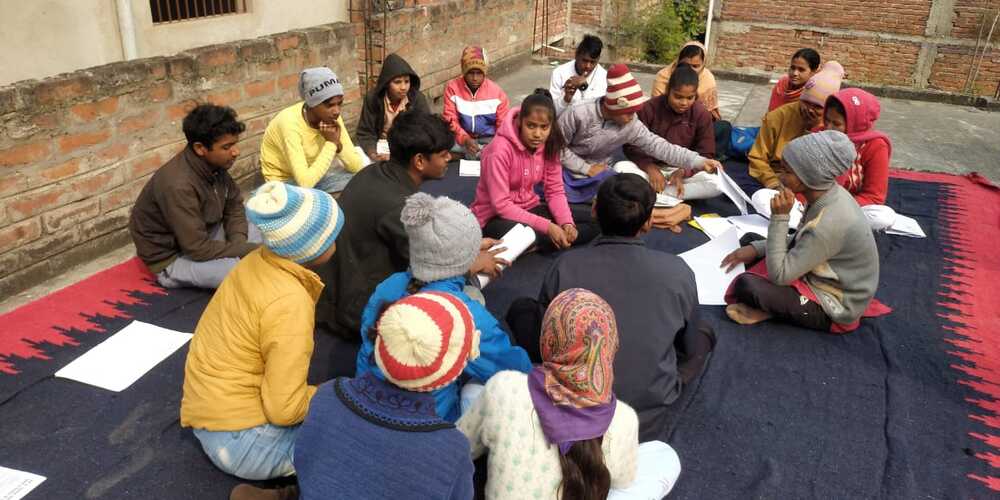Latest
Climate change fuels spread of deadly fungi, putting millions at risk: Study
Fungal infections now kill more people annually than many bacterial diseases, yet remain dangerously overlooked
Author

Sneha Richhariya is a reporter based in New Delhi, India. Her work focuses on health, environment and gender. She is the recipient of UN Laadli Media Award 2024 and Human Rights and Religious Freedom (HRRF) Award 2023. She has received fellowships from Internews Earth Journalism Network, Health Systems Transformation Platform (HSTP), Deutsche Welle Hindi, Report for the World and National Coalition for Natural Farming (NCNF). She has written for organisations like Deutsche Welle, Scroll, Mongabay India, South China Morning Post (SCMP), Newslaundry, Himal Southasian, The Third Pole, The Quint, IndiaSpend and Article 14.
View all posts
Author

Sneha Richhariya is a reporter based in New Delhi, India. Her work focuses on health, environment and gender. She is the recipient of UN Laadli Media Award 2024 and Human Rights and Religious Freedom (HRRF) Award 2023. She has received fellowships from Internews Earth Journalism Network, Health Systems Transformation Platform (HSTP), Deutsche Welle Hindi, Report for the World and National Coalition for Natural Farming (NCNF). She has written for organisations like Deutsche Welle, Scroll, Mongabay India, South China Morning Post (SCMP), Newslaundry, Himal Southasian, The Third Pole, The Quint, IndiaSpend and Article 14.
View all posts
- admin / 3 days

- 0
- 3 min read

Author

Sneha Richhariya is a reporter based in New Delhi, India. Her work focuses on health, environment and gender. She is the recipient of UN Laadli Media Award 2024 and Human Rights and Religious Freedom (HRRF) Award 2023. She has received fellowships from Internews Earth Journalism Network, Health Systems Transformation Platform (HSTP), Deutsche Welle Hindi, Report for the World and National Coalition for Natural Farming (NCNF). She has written for organisations like Deutsche Welle, Scroll, Mongabay India, South China Morning Post (SCMP), Newslaundry, Himal Southasian, The Third Pole, The Quint, IndiaSpend and Article 14.
View all posts
Climate change is fueling the spread of dangerous fungi, putting millions of people at risk of severe infections, according to a new study from the University of Manchester.
The research warns that rising global temperatures and shifting weather patterns are enabling fungi like Aspergillus to thrive in new regions, threatening public health across Europe, Asia, and the Americas.
Fungi are essential to ecosystems but can devastate human health, killing an estimated 2.5 million people annually, more than many bacterial diseases. Fungal infections spread through spores in the air we breathe. Those with weak immune systems or health conditions are most at risk, but rising temperatures may make fungi more dangerous, potentially causing more infections in healthy people, the study explains.
“If the immune system fails to clear the spores, the fungus grows and essentially eats you from the inside out,” Dr Norman van Rhijn, the lead researcher, told CNN.
People with weakened immune systems, such as those with asthma, cystic fibrosis, cancer, or post-COVID conditions, are most vulnerable, but warming climates may enable fungi to infect healthy individuals by adapting to human body temperatures.
Climate-driven fungal expansion
The study projects that under a high-emission scenario, Aspergillus flavus, a fungus that produces toxic compounds and causes lung infections, could expand its range by 16% in Europe by 2040, exposing an additional 1 million people to risk.
Even more alarming, Aspergillus fumigatus, a major cause of deadly respiratory infections, may spread across 77% more territory by 2100, potentially affecting 9 million more Europeans, especially those with conditions like asthma or cystic fibrosis.
Warmer temperatures and increased humidity, driven by climate shifts like floods and droughts, create ideal conditions for these fungi. Unlike bacterial infections, which have numerous antibiotics, fungal infections are treated with just 17 antifungal drugs, many losing effectiveness due to growing resistance.
The study also points to Candida auris, a climate-adaptive fungus first identified in 2009, which is increasingly able to infect humans as it adjusts to higher body temperatures.
Global burden
The global burden of fungal infections is growing at an alarming rate. Worldwide, around 6.5 million invasive fungal infections occur annually, leading to roughly 3.8 million deaths, with about 2.5 million directly caused by these infections. Over 2.1 million people develop invasive aspergillosis each year, primarily affecting those with chronic lung conditions, intensive care patients, or blood and lung cancer, with a staggering 85.2% mortality rate.
In regions like India, fungi such as Mucor have worsened post-COVID outcomes, with environmental changes amplifying their spread.
Dr Rhijn noted, “Changes in environmental factors, such as humidity and extreme weather events, will change habitats and drive fungal adaptation and spread.
“We’ve already seen the emergence of the fungus Candida auris due to rising temperatures, but, until now, we had little information of how other fungi might respond to this change in the environment,” he further said. “Raising awareness and developing effective interventions for fungal pathogens will be essential to mitigate the consequences of this.”
Also read: WHO Flags Deadly Rise in Fungal Infections & Drug Gaps
(Do you have a health-related claim that you would like us to fact-check? Send it to us, and we will fact-check it for you! You can send it on WhatsApp at +91-9311223141, mail us at hello@firstcheck.in, or click here to submit it online)
Author

Sneha Richhariya is a reporter based in New Delhi, India. Her work focuses on health, environment and gender. She is the recipient of UN Laadli Media Award 2024 and Human Rights and Religious Freedom (HRRF) Award 2023. She has received fellowships from Internews Earth Journalism Network, Health Systems Transformation Platform (HSTP), Deutsche Welle Hindi, Report for the World and National Coalition for Natural Farming (NCNF). She has written for organisations like Deutsche Welle, Scroll, Mongabay India, South China Morning Post (SCMP), Newslaundry, Himal Southasian, The Third Pole, The Quint, IndiaSpend and Article 14.
View all posts










